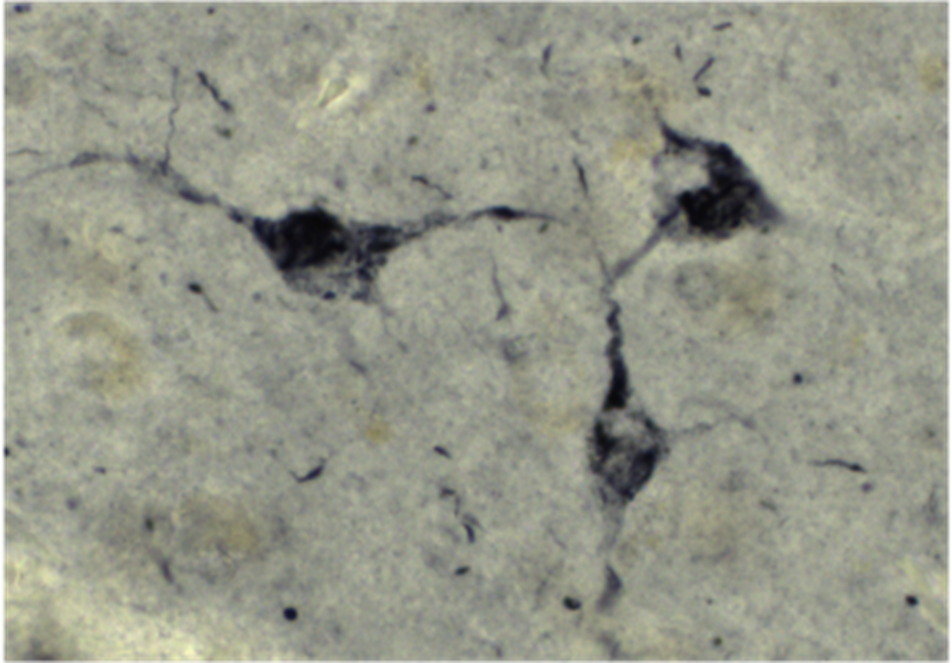By Jakob Hartmann and Kerry Ressler
Stress affects all of us, but its impact on mental health can be profound. Our recent study sheds light on a molecular pathway involving the glucocorticoid receptor (GR)—a key player in the brain’s stress response—and a little-known protein called SKA2. This discovery has important implications for understanding bipolar disorder (BD), a condition marked by extreme mood swings, disruptions in stress regulation, and the highest suicide rate of any psychiatric illness.
The GR is central to how our bodies respond to stress, helping to regulate the release of hormones like cortisol. However, its function depends on interactions with a network of helper proteins. We found that SKA2 acts as a crucial regulator of this system by enhancing GR’s interaction with FKBP4, a protein that promotes GR activity, while counteracting the effects of FKBP5, which inhibits it. Together, these proteins determine how efficiently GR can help the brain recover from stress.
Our experiments in mice revealed that SKA2 is essential for maintaining balance in the stress response. When SKA2 levels were reduced in stress-sensitive brain regions, such as the hypothalamus, the animals showed delayed recovery from stress and altered hormone regulation. We also found that SKA2 expression is altered in the brain following stress, suggesting a role for this protein in adapting to environmental challenges.

SKA2 immunostaining in neurons of the human brain.
What makes this particularly relevant to BD is our discovery that SKA2 expression is significantly altered in the brains of individuals with the disorder. Specifically, we observed changes in SKA2 levels in the hippocampus and amygdala—regions critical for regulating emotions and processing stress. This finding could help explain why people with BD often struggle with stress management and are at greater risk of suicide.
By uncovering this link between SKA2, GR signaling, and stress regulation, our study offers new insights into the molecular underpinnings of BD. We hope these findings will pave the way for novel treatments targeting SKA2 and its pathways, improving outcomes for individuals living with stress-related psychiatric disorders.
Jakob Hartmann is director of the Neurobehavioral Stress Resilience Laboratory at McLean Hospital and an Assistant Professor of Psychiatry at Harvard Medical School.
Kerry Ressler is Chief Scientific Officer and James and Patricia Poitras Chair in Psychiatry at McLean Hospital. He is also a professor in Psychiatry at Harvard Medical School.
Learn more in the original research article:
SKA2 enhances stress-related glucocorticoid receptor signaling through FKBP4-FKBP5 interactions in neurons.
Hartmann J, Klengel C, Dillmann LJ, Hisey EE, Hafner K, Shukla R, Soliva Estruch M, Bajaj T, Ebert T, Mabbott KG, Rostin L, Philipsen A, Carlezon WA Jr, Gisabella B, McCullumsmith RE, Vergis JM, Klengel T, Berretta S, Daskalakis NP, Pantazopoulos H, Gassen NC, Ressler KJ. Proc Natl Acad Sci U S A. 2024 Dec 24;121(52):e2417728121.
This study was supported by a Harvard Brain Science Initiative Bipolar Disorder Seed Grant awarded to Jakob Hartmann and Nikolaos Daskalakis, as well as grants from the National Institutes of Health.
News Types: Community Stories
